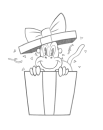Building Facial Features from Various Angles
$115
DOWNLOADS
building-facial-features-from-various-angles.mp4
584 MB
building-facial-features-from-various-angles-transcript-english.txt
26 kB
building-facial-features-from-various-angles-transcript-spanish.txt
28 kB
building-facial-features-from-various-angles-captions-english.srt
44 kB
building-facial-features-from-various-angles-captions-spanish.srt
49 kB
COMMENTS
Let’s explore constructing heads from various angles using the 8 Step Method. Starting with basic proportions and planes, we built up the structure of the skull, eye sockets, nose, mouth, and chin. Key points included maintaining perspective consistency, using overlapping forms to create depth, and thinking about surface changes to inform lighting.
Here are my heads, I'm having a blast building them like this, it's so enjoyable, I can't stop, is that serious doctor?
Hi!
@michaelhampton A quick question - how did you get the top point indicating the top of the side plane of the head (22 min 32 sec of the vid)? It should sit on the hair line - in a front view with less dramatic perspective it is quite simple to position it correctly, with the 3/4 view and head looking down I'm confused.
Thank you for such a fantastic course!
I rly love this course, even as a beginner its easy to follow! Its far from perfect but I'm starting to understand the forms more and more
In the video, you mentioned that after completing the construction phase, you should reduce the opacity to add details. However, when working traditionally with pencil and such, do you create your initial construction lightly and then apply darker details over it? Thank you.
You can either draw lightly on your construction (using a very hard pencil like a 4H helps with this) and then draw over it or use an eraser to lighten down the pre-drawing. kneadable erasers are perfect for this.
Recently practiced by attempting to apply the steps thus far to a stylized reference, I’m excited at the results since I’m ultimately looking to draw manga. Thanks to this course I’m seeing and analyzing art in a totally new and fun light!
(Hopefully this was cool to post, I know everyone else were referencing real life photos…)
Didn't get through them all, looking forward to giving the other ones a crack to.
Any critique is welcome! Also, does anyone have any tips on how to make finding the temple/side plane of the head easier?
Mr. Hampton or anyone else, could you provide feedback on this? I think I made the jaw too long because the Loomis rhythm doesn't look correct. Also looks like the features have "slid" down the lower half of the face. Perhaps my centerline is incorrect.






